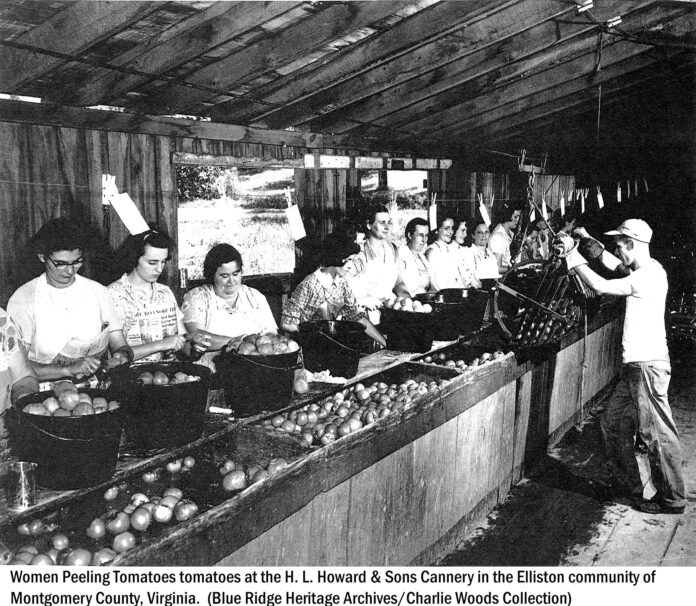 Though little evidence can be seen driving rural roads today, hundreds of small canneries once dotted the Virginia countryside. Yet by 1950, nearly all of them were closed, leaving behind workers’ memories, empty buildings, and a wealth of wonderful graphic art. This legacy is explored in a new gallery exhibition Virginia’s Forgotten Canneries: A History in Labels at Ferrum College’s Blue Ridge Institute & Museum. The exhibition runs now through the spring of 2016.
Though little evidence can be seen driving rural roads today, hundreds of small canneries once dotted the Virginia countryside. Yet by 1950, nearly all of them were closed, leaving behind workers’ memories, empty buildings, and a wealth of wonderful graphic art. This legacy is explored in a new gallery exhibition Virginia’s Forgotten Canneries: A History in Labels at Ferrum College’s Blue Ridge Institute & Museum. The exhibition runs now through the spring of 2016.
To tell its story, Virginia’s Forgotten Canneries features over 300 vintage Virginia canning labels along with historic photographs, canning equipment, and video interviews. From the late 1800’s through the mid-20th century, local canneries provided seasonal work to nearby residents and a crucial market for farmers to sell their bulk produce – especially tomatoes. The counties along Virginia’s central Blue Ridge Mountains were particularly rich in canneries. In 1915 Botetourt County alone had 193 canneries. Most of those community canneries are known today because they had their own labels commercially printed.
 The Virginia’s Forgotten Canneries exhibition draws from the remarkable collections of Bedford’s Piedmont Label Company (now Smyth Companies) and 35 years of research and collecting by historian Charlie Woods. The Piedmont Label Company formed in 1916 to serve the cannery market, and in 2014 the firm donated approximately 10,000 of its pre-1960 labels to Ferrum College’s Blue Ridge Institute & Museum. Virginia’s Forgotten Canneries: A History in Labels has also been funded by a grant from the Virginia Foundation for the Humanities.
The Virginia’s Forgotten Canneries exhibition draws from the remarkable collections of Bedford’s Piedmont Label Company (now Smyth Companies) and 35 years of research and collecting by historian Charlie Woods. The Piedmont Label Company formed in 1916 to serve the cannery market, and in 2014 the firm donated approximately 10,000 of its pre-1960 labels to Ferrum College’s Blue Ridge Institute & Museum. Virginia’s Forgotten Canneries: A History in Labels has also been funded by a grant from the Virginia Foundation for the Humanities.
“Through the small canneries, Virginia foods were sold across the nation under brands named after a little creek running through someone’s farm or a nearby mountain,” said exhibition curator Beth Worley. “If a farmer could grow it, he could get it canned – everything from cantaloupe to chicken gizzards.. Then in the span of a single generation the network of small rural canneries disappeared.”
Located on the campus of Ferrum College, the Blue Ridge Institute & Museum galleries are open Mondays through Saturdays, 10 a.m. to 5:00 p.m., year-round; and Sundays, 1 to 5:00 p.m., mid-May through Labor Day. Gallery admission is free. For more information call 540-365-4412 or visit www.blueridgeinstitute.org.


